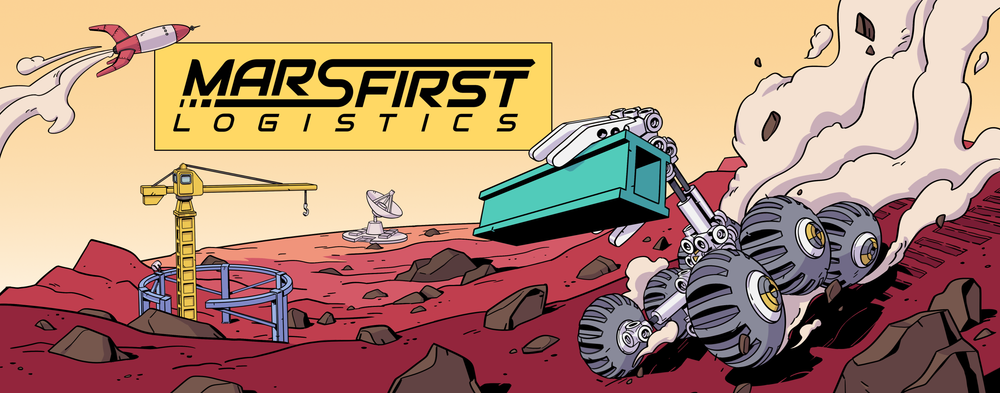Mars First Logistics is pure comedic gold
I can’t think of a game in recent memory that brought me as much unadulterated joy as Mars First Logistics. In 2025, video game storytelling, graphics, and mechanics have never been better; even in the past nine months, we’ve seen at least three games lauded as “all-timers,” including Expedition 33, Silksong, and Hades 2. And yet, the game that has been steadily creeping up my GOTY list is not one with punishing precision timing, emotionally crushing moments, or infinite replayability. No, the game bounding over hills and yeeting step ladders into my end-of-the-year list is a little game about a robot, Mars, and last-mile delivery.
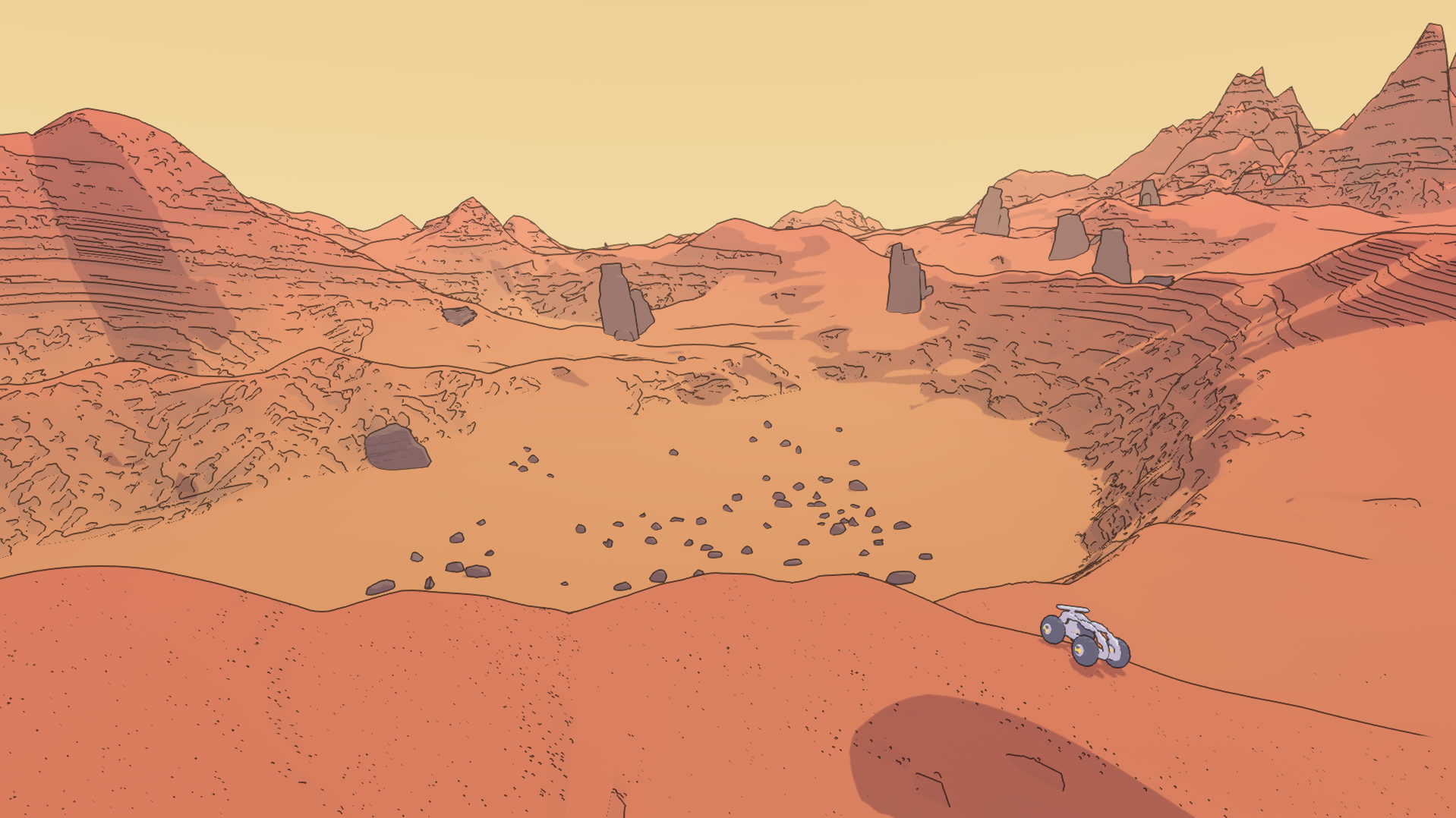
ShapeShops’ Mars First Logistics is, first and foremost, a Kerbal Space Program Lite physics sim. You pilot a customizable rover on the surface of Mars, picking up and completing delivery contracts for mundane, everyday objects. Every contract will require a specialized rover, so you’ll constantly be snapping together a new rover design with all the complicated parts you expect of something like Kerbal or Lego Mindstorm. Pick up the stepladder, umbrella, steel I-beam, or pumpkin with your weird cobbled together machine, then drive it across the rocky, hilly Martian landscape to finish a new part of the Martian base. You can customize your machine at any point by hitting the Y button your controller, allowing you to pivot your design if something goes horribly wrong (it will) or your design just isn’t working as intended. A design based on a claw game or forklift will get you most of the way, but it won’t take long for you to be making far too elaborate machines that break in hilarious ways.

The comedy in Mars First Logistics is truly its standout feature as well. As much as I love the building (it really does tickle that Kerbal Space Program, Space Engineers, or Beseiged! itch I need to scratch), it’s how the game presents so many opportunities for your hubris to bite you in the butt that is so damn entertaining. Unlike those more simulation-style physics games, Mars First Logistics is super lightweight. There’s no onscreen throttle, you’re not managing fuel or durability, and you can reset your rover at any point. There are so few moments where something is so irrevocably broken that you need to fully reset the contract that when you do something spectacularly silly, it feels silly, not frustrating. That said, if you’re like me, you’ll probably get stubbornly locked-in for half an hour trying to fish a crate of apples out of a ravine, even though you could’ve restarted the contract and lost nothing.
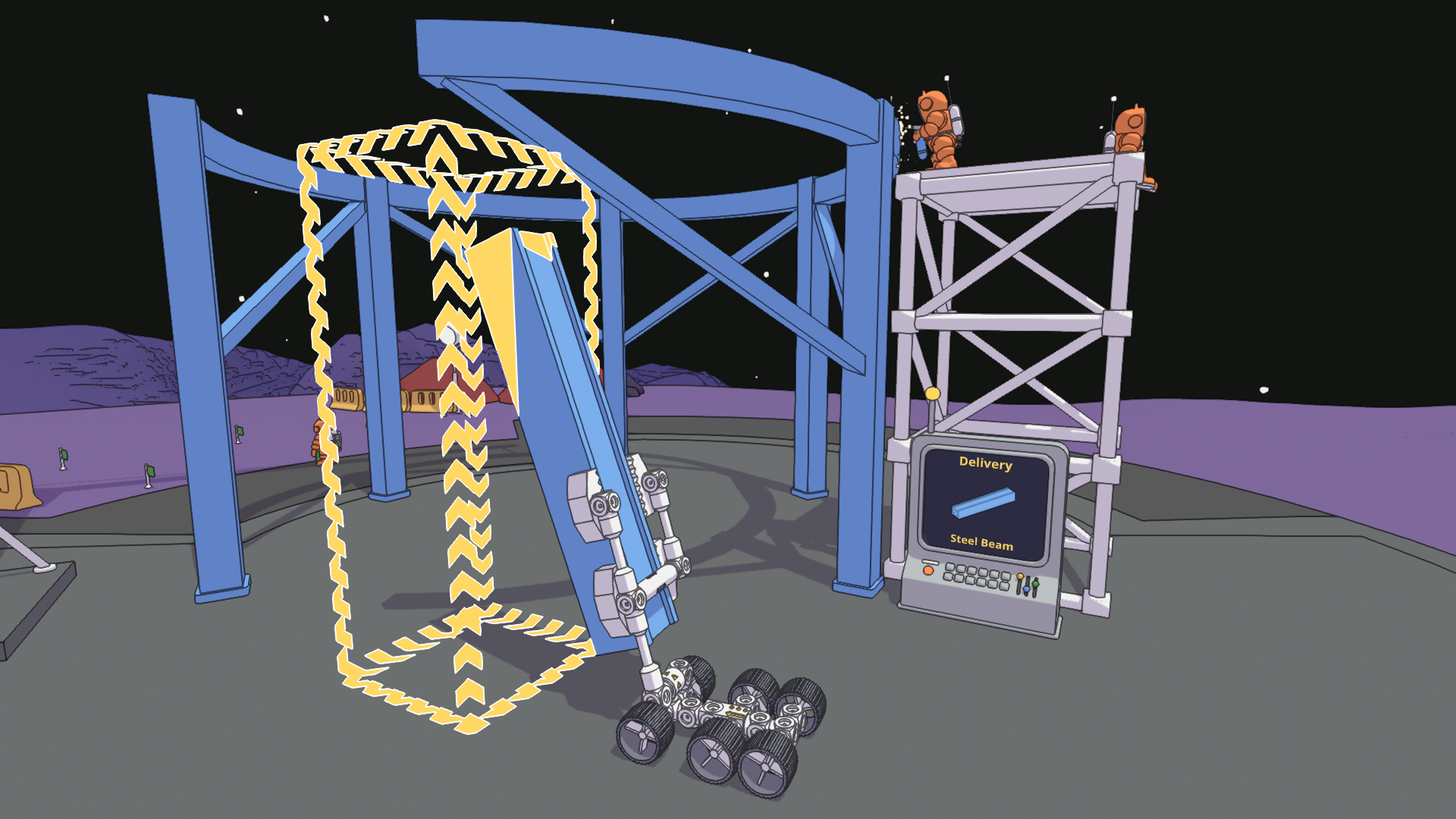
That stubborn engineering experimentation is just as hilarious the twelfth time as it is the first, and is just the tip of the iceberg when it comes to comedy. For example, imagine you’re driving a pumpkin up a steep hill, hit the throttle too hard and the pumpkin shifts in the poorly constructed truck bed you’ve designed, thus the pumpkin tumbles down the hill behind you as your rover pitches backward from the momentum and flips all the way down right after the wayward gourd. Or maybe you manage to drive that long I-beam across the rocky landscape, not once flipping over, only to arrive at the drop off point to discover that the beam needs to be standing vertically to complete the contract. Or the box of loose apples you made an elaborate semi truck rover to deliver needs to be lifted up and placed on a shelf.
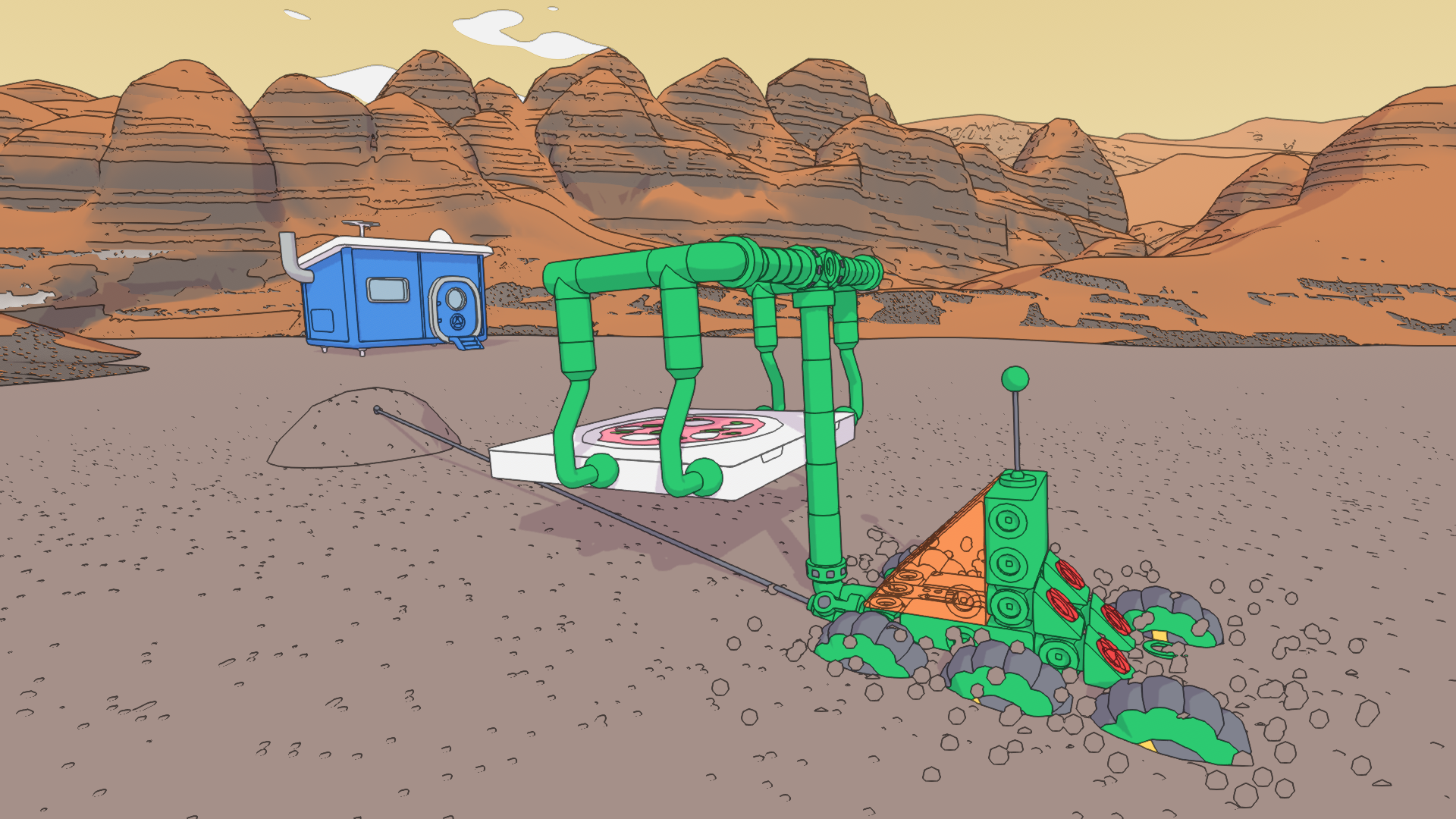
In another game I think it’d be easy to be frustrated or disappointed by these momentary physics hiccups or late-breaking win conditions, but every single time something unexpected happened in Mars First Logistics, I found myself laughing at the game and the audacity to subvert my expectations. I just drove this thing two kilometers and now I have to create an entirely new rover to actually finish the mission? The genius part of the game, is that you can. Right then and there, you pop open the build menu and create a brand new machine that takes that horizontal I-beam and makes it stand. This is what I love most about Mars First Logistics: as much as it’s a game about physics and accomplishing goals, all the game really wants you to do is have fun. Make a silly, over-engineered machine, fix a whoopsies, or just vibe out in the incredible environment.

If it’s not clear yet, Mars First Logistics is an absolute stunner to look at. The low-detail landscape akin to Moebius’ art—perhaps most well-known in games from titles like Sable and Rollerdrome—is perfect for zipping across Mars. Topography can sometimes be hard to determine (is that a hill or flat?) which just adds to the humor when you unexpectedly are catching four seconds of air, a watering can spiraling on your hook like a helicopter blade. There’s not a ton of diversity—Mars isn’t known for its jungles, after all—but there’s still a lot of color, vibrancy, and traversal challenges hidden throughout the barren landscape. There’s plenty to see when the mood to just wander the Martian dunes strikes.

Robotic prat-falls not enough to get you chuckling? I guarantee the first time you put the throttle down and start kicking up dust across Mars and Dan Golding’s soundtrack kicks in you’ll be grinning like a school kid. Probably most well-known for the music for Untitled Goose Game, Dan Golding crushes what I have described as “The soundtrack from Drive, but happy” or “Carpenter Brut in the daytime.” The upbeat vaporwave tunes are infinitely replayable and fit perfectly in the very pared down landscape and lack of UI. All of Mars First Logistics’ sound design is impeccable, but I’ll never stop listening to “Data Box” for the rest of my life.
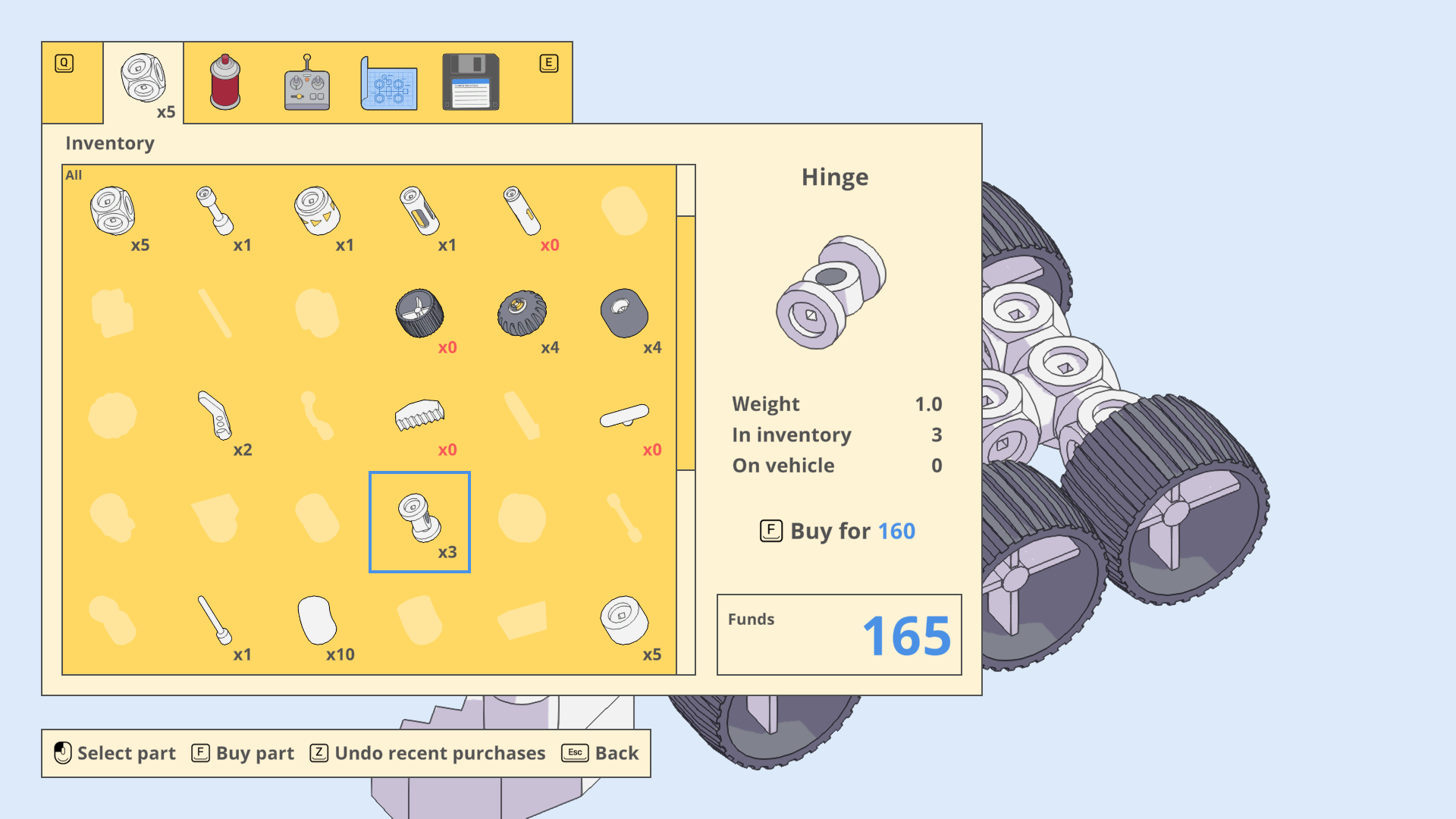
Even the build music is the perfect vibe for Lego-snapping together weird and wonderful machines. Which is great news, because you’re going to be spending tons of time in that menu, tweaking node placement, messing with actuators, servos, and extension parts. The build menu is pretty solid, allowing you to pick from a menu of parts, then place them on your machine. You’ve got your classic manipulation tools and there’s even a pretty easy to use copy/paste function. The big thing missing for me is a way to manipulate your movement parts in this menu. I’ve had to rebuild a machine multiple times because I’ve misjudged the alignment on a piston or how two different rotating servos would interact. It’s not a big problem because loading in and out of the menu is super fast, I just wish I could see how some parts would interact with one another before trying to pick up this CRT television (with detachable antenna that, yes, you do have to also deliver).
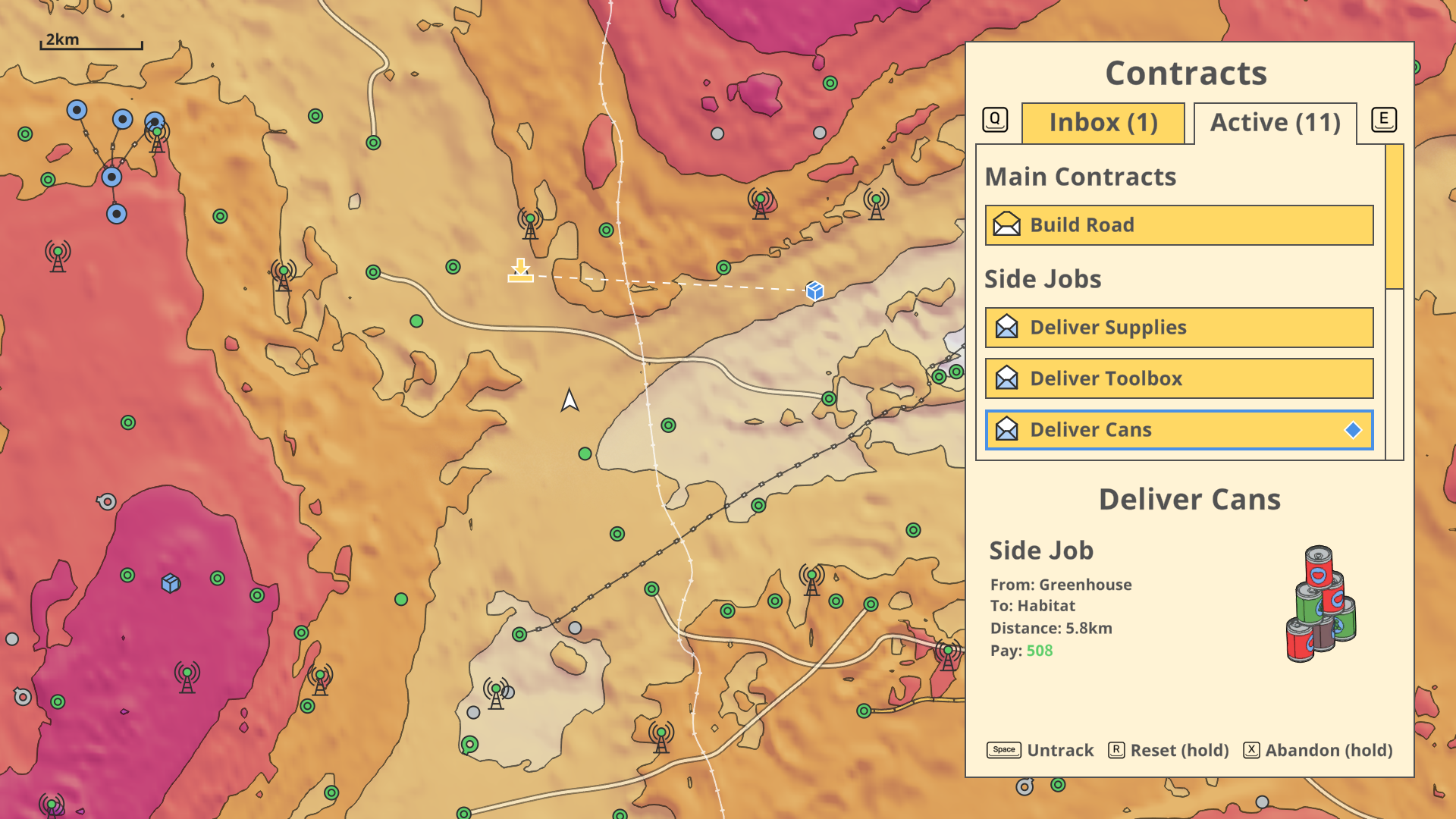
When you’re not busy schlepping TVs or watermelons across Mars, you can also just load up your favorite scouting car and drive across the dunes. As you continue to play, contracts will get further from the main base you start at, so you need to extend your radio range. It’s not super difficult to do—just zip around the landscape and drop an antenna for a negligible amount of currency—but I enjoy being able to switch mental modes and idly speed across the world trying to find the perfect place to efficiently place a radio tower. Because Mars First Logistics knows what it’s doing: you’re trying to optimize radio placement, but you’re also thinking about how the rover works, how the pieces you just acquired could make up something truly ghoulish, and how that might just solve the challenge of a particular object you haven’t cracked yet. Maybe those extra big wheels will help traverse a mud-pit, or those bearing parts could be used to make a double-bogie suspension, just like on Curiosity.

I know these physics games can be pretty tough to recommend—I’ve put hundreds of hours into Kerbal Space Program and I still don’t know if I know anyone I’d recommend it to—but if you’ve ever been physics sim or builder game curious, give Mars First Logistics a go. I still have a ton of levels to dig into, but there’s so much to love in the first 8 hours already. For people who are physic games sickos, this one is for you. It’s tightly designed and has that thing I covet above all else: puzzles you can solve with the smart application of dumb ideas or over-engineered mechanical monstrosities. I wholeheartedly endorse this chill—dare I say cozy?—physics sim about the little rover that could.


